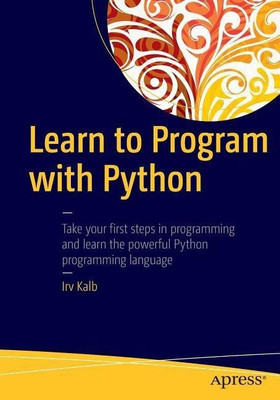Learn to Program with Python(English, Paperback, Kalb Irv)
Quick Overview
Product Price Comparison
Get started in the world of software development: go from zero knowledge of programming to comfortably writing small to medium-sized programs in Python. Programming can be intimidating (especially when most books on software require you to know and use obscure command line instructions) but it doesn't have to be that way! In Learn to Program with Python, author Irv Kalb uses his in-person teaching experience to guide you through learning the Python computer programming language. He uses a conversational style to make you feel as though he is your personal tutor. All material is laid out in a thoughtful manner, each lesson building on previous ones. Many real-world analogies make the material easy to relate to. A wide variety of well-documented examples are provided. Along the way, you'll develop small programs on your own through a series of coding challenges that reinforce the content of the chapters. What You Will Learn Learn fundamental programming concepts including: variables and assignment statements, functions, conditionals, loops, lists, strings, file input and output, Internet data, and data structures Get comfortable with the free IDLE Interactive Development Environment (IDE), which you will use to write and debug all your Python code - no need to use the command line! Build text-based programs, including a number of simple games Learn how to re-use code by building your own modules Use Python's built-in data structures and packages to represent and make use of complex data from the Internet Who This Book Is For This book assumes that you have absolutely no prior knowledge about programming. There is no need to learn or use any obscure Unix commands. Students of any age who have had no exposure to programming and are interested in learning to do software development in the Python language. The book can be used as a text book associated with a high school or college introduction to computer science course. Secondly, people who have had exposure to some computer language other than Python, who would like to build good habits for programming in Python.


